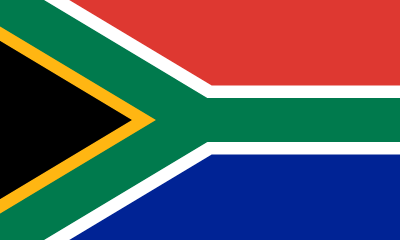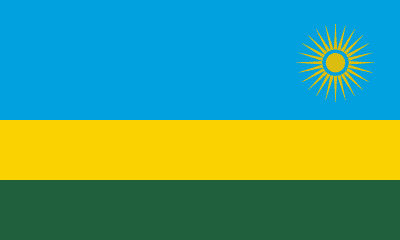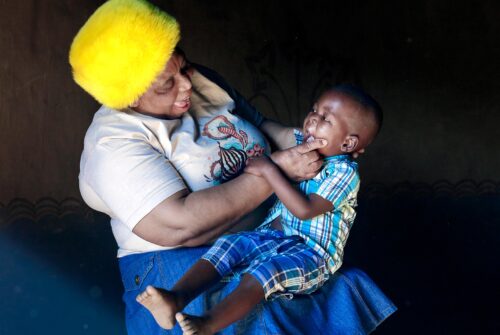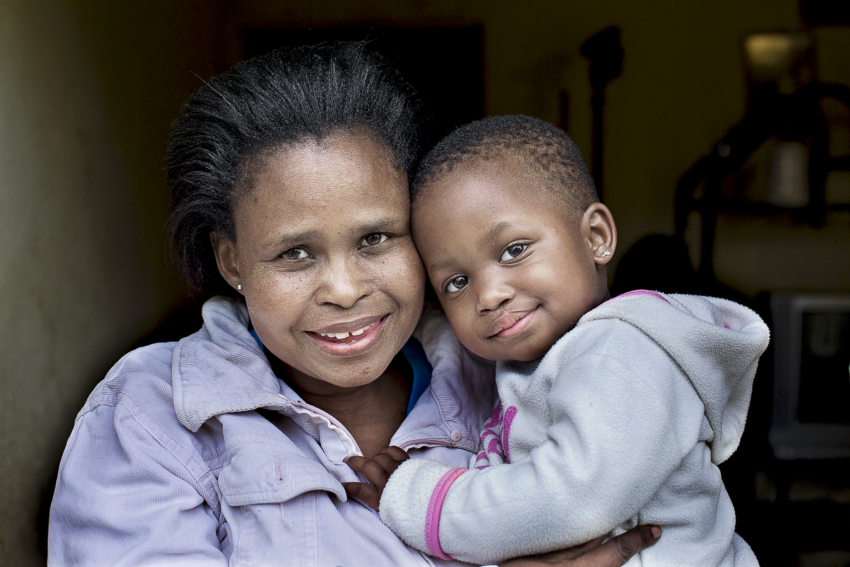
Operation Smile has delivered high-quality surgical care for over 520 patients in South Africa.
THE NEED
0.3 per 1,000 births. The estimated prevalence of cleft conditions in South Africa is 0.3 per 1,000 live births. Operation Smile’s survey revealed that 83% of patients arriving at Operation Smile programs in South Africa could not have undergone surgery without the support of Operation Smile.
Unequal access to care. The issue of inequitable access to healthcare in South Africa can be traced back to the apartheid period (1948–1993). 80% of medical providers serve 16% of the population in the private sector, even though 84% of South Africans depend on the public health sector for their healthcare needs.
Patients at public healthcare facilities often face limited healthcare services, long waiting times, old infrastructure and inadequate disease control and prevention practices. This puts patients born with cleft conditions at an even greater risk.
Barriers to treatment. South Africa has just 11 specialist surgical workers per 1,000 people, which falls short of the target set by the Lancet Commission on Global Surgery of 20 surgical providers per 1,000 people. The shortage of medical providers is exacerbated by financial barriers to healthcare.
Financial barriers. 78% of patients arriving at Operation Smile programs in South Africa live below the poverty line and 97% have no health insurance. Out-of-pocket health expenses often prevent people from reaching the care that they need. 28% of the population is at risk of impoverishing expenditure for surgical care, while 15% faces catastrophic expenditure in case of surgical care. The unemployment rate in South Africa stands at 32%, making it difficult for many families to afford medical treatments, including surgeries for cleft conditions.
Barriers to education and employment. Without surgery, patients face challenges in school attendance and performance. Many caregivers stay home to provide the necessary support for their child.
In South Africa, 42% of patients arriving at Operation Smile programs reported that their condition affects their school performance. Moreover, 39% of surveyed caregivers remain at home to care for their child.
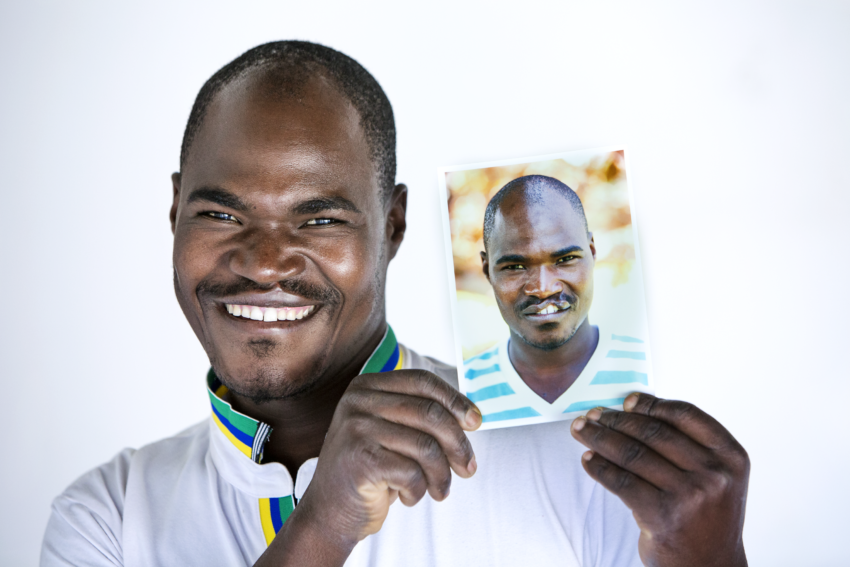
OUR FORMULA FOR TRANSFORMATION
Operation Smile’s formula for transformational impact combines care delivery & capacity-building.
Education programs are at the center of Operation Smile’s strategy to increase access to surgery closer to the patient’s home.
Each surgical program brings together providers from all over the world for a unique opportunity to share knowledge and innovate. This type of bi-directional learning is essential to redistributing knowledge between providers and building capacity in the areas of greatest need.
Our work in health infrastructure & equipment addresses structural barriers to care and helps build robust health systems. Operation Smile’s research & innovation efforts inform all aspects of our decision-making and allow us to have a comprehensive understanding of the impact our programs have on patients.
HUB & SPOKES
To ensure that every child has access to care close to home, we equip the providers within our patients’ communities with skills and resources to deliver high quality care. We build the needed capacity by harnessing the talent and resources that exist within the country, usually in the bigger cities, the hubs, to train providers in under-resourced areas, the spokes, where most patients lack access to care.
In South Africa, our hubs are based in Eastern Cape (Nelson Mandela Academic Hospital), Mpumalanga (Rob Ferreira Hospital), Gauteng (Nelson Mandela Children’s Hospital) and Kwa-Zulu Natal (Inkosi Albert Luthuli Central Hospital).
The spokes are located in Mpumalanga (Witbank, Tintswalo, Themba and Piet Retief) and Eastern Cape (Mthatha Regional, St. Elizabeth, Zithulele, Madwaleni and St. Patrick’s).
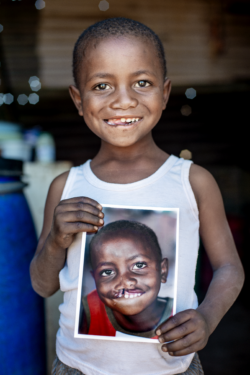
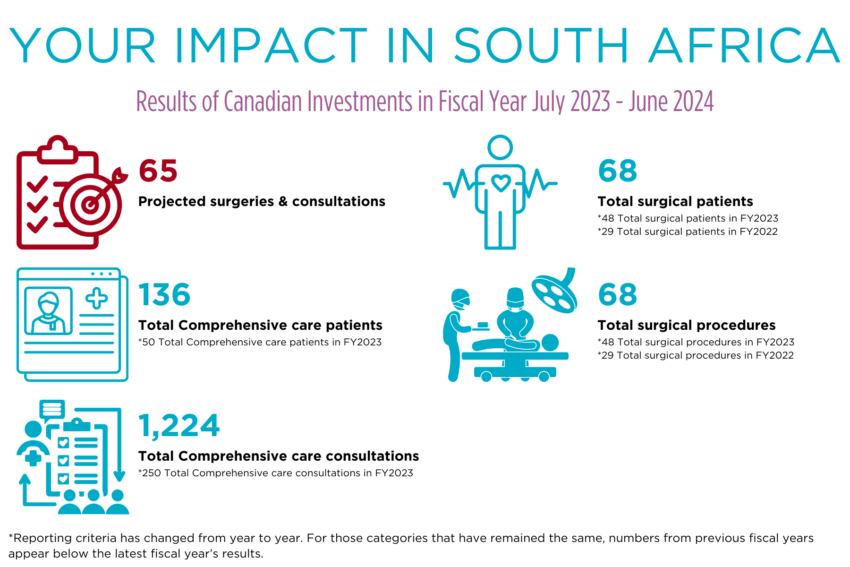
During Fiscal Year July 2024 – June 2025, Operation Smile will invest $231,400 to provide surgical care for over 120 patients and train around 240 medical providers.
Cleft Care Programs
Operation Smile will provide surgical treatment for over 120 individuals, deliver oral health consultations to 240 patients and deliver speech consultations to 70 patients.
Education
Operation Smile will provide training and education for over 240 health workers in South Africa. Professionals in the fields of dentistry and orthodontics will undergo training and volunteers will attend American Heart Association courses. We will provide cleft-specific training for qualified plastic surgeons and speech therapists. Our goal is to expand our volunteer network to 170 dedicated individuals.

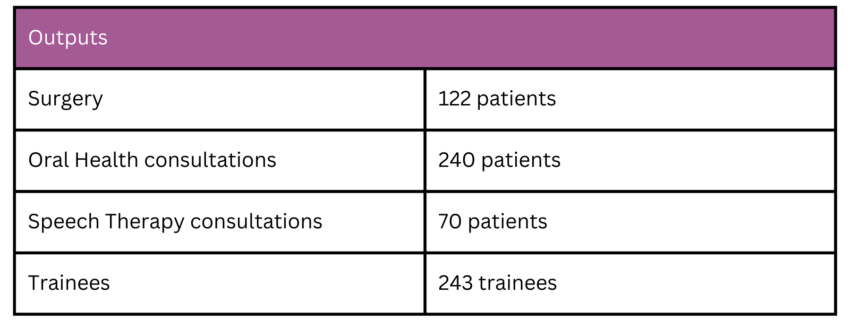
FIVE-YEAR VISION
Operation Smile will reduce barriers to seeking and reaching care in South Africa, delivering high-quality care to children born with cleft conditions.
In the next five years, we project to provide 1,210 patients with surgery and 2,280 patients with comprehensive care.
We will provide follow-up comprehensive care consultations to patients who already received surgery in the past five years.
Operation Smile will continue to invest in the health workforce, enhancing the quality and quantity of medical providers in South Africa. Our goal is to expand our volunteer network to 170 dedicated individuals in the next five years.

